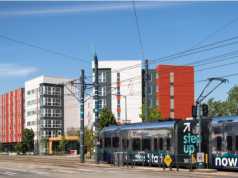Seattle Housing Authority Wins $10 Million HUD Grant to Expand Housing
Seattle One of 14 Authorities Nationwide to Win Public Housing Capital Funds to Transform and Expand Public Housing and Create Jobs
WASHINGTON, DC – September 3, 2009 – (RealEstateRama) — U.S. Department of Housing and Urban Development Secretary Donovan today announced that HUD has awarded $10 million to the Seattle Housing Authority $10 million to help develop, beginning next summer. up to 118 units of rental housing in the Rainier Vista neighborhood.
Seattle was one of 14 housing authorities nationwide to be awarded $96 million to make substantial improvements to thousands of public housing units. The other authorities include Chicago, Baltimore, Denver, Indianapolis, New Haven, Rutland, Sarasota, Cambridge (MA), Watertown (MA), Evansville, Rockford, Hammond and Sacramento.
“The funding HUD is awarding to public housing authorities today will inject necessary capital funding into our economy, creating much-needed, quality jobs at a time when they are needed more than ever.” said HUD Secretary Shaun Donovan. “These investments will not only provide quality housing for low-income residents, but will also encourage economic growth and development in communities across the county.”
The Public Housing Capital Funds being awarded today are provided through The American Recovery and Reinvestment Act of 2009 (Recovery Act) and are specifically designated for public housing transformation, to help redevelop public housing that is blighted and distressing to the surrounding community. These grants will address the factors creating blighted public housing through renovation of existing housing or demolition and redevelopment of new public housing or a mixture of public housing and non-public housing on the site.
In February, just eight days after President Obama signed the Recovery Act into law, HUD allocated nearly $3 billion in Recovery Act funding to more than 3,100 public housing authorities across the U.S. Distributed by formula, that funding is already being put to work to improve public housing and create safer, more livable environments for lower income residents.
The funding being announced today is part of an additional $1 billion in Public Housing Capital Funds designated by the Recovery Act to be awarded competitively. HUD accepted applications under this program from public housing authorities from June 22 until August 18, 2009. HUD is reviewing applications and awarding grants to PHAs that effectively address the requirements in the Notice of Funding Availability (NOFA), which can be accessed at HUD’s Recovery Act website, for the following four funding categories:
- Public Housing Transformation: $100 million is available to transform obsolete public housing projects into newly built or renovated developments. The grants being awarded today fall under this category.
- Financing Stalled Projects: $200 million is available to allow PHAs to develop or renovate public housing projects stalled due to lack of resources.
- Housing for the Elderly/Persons with Disabilities: $95 million is available to improve public housing units and create community facilities for the delivery of medical and other services to this vulnerable population.
- Energy Efficiency: $600 million is available for PHAs to create more energy efficient public housing units. Applications were due for this category on July 21, 2009.
HUD’s Capital Fund Program provides annual funding to public housing authorities to develop, finance, and/or modernize the public housing in their communities. This funding can be used to make large-scale improvements such as new roofs and for the replacement of plumbing and electrical systems to increase energy efficiency.
###
HUD is the nation’s housing agency committed to sustaining homeownership; creating affordable housing opportunities for low-income Americans; and supporting the homeless, elderly, people with disabilities and people living with AIDS. The Department also promotes economic and community development and enforces the nation’s fair housing laws. More information about HUD and its programs is available on the Internet at www.hud.gov and espanol.hud.gov.




